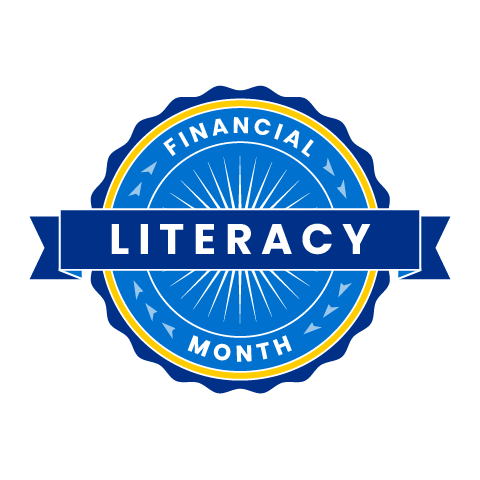

April is National Financial Literacy Month, which is designed to create awareness about the importance of personal financial education. Throughout the month, we share different financial tips designed to enhance your financial well being. Be sure to check out the page for financial tips and children's stories.